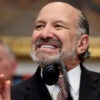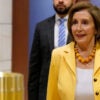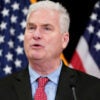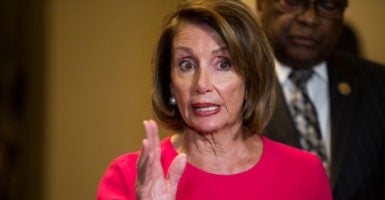I have zero interest in financially supporting any politician, much less ones I find morally unpalatable. Yet Democrats want to force me—and every other American taxpayer—to contribute, as a matter of public policy, to the campaigns of candidates we disagree with.
Believe it or not, this might be an even more dangerous assault on free expression than unpleasant tweets directed at CNN anchors.
One of Nancy Pelosi’s first projects as the new speaker of the House will be passing a government overhaul of campaign finance and ethics rules that would, among other things, “expand voting rights.” One of the new bills—specifics are still cloudy—reportedly would allocate a pool of taxpayer money to match small-dollar donations 6-to-1, as a way of encouraging “grassroots campaigning,” according to The Wall Street Journal.
The package, fortunately, wouldn’t pass the Senate. But creating government-financed campaigns—empowering the state to allocate money to preferred donors and dissuading nonpreferred donors—has been something of a hobbyhorse in progressive circles.
Setting aside the many constitutional concerns, the recent abuses by the IRS when tasked with regulating political speech demonstrate just how easy it is for bureaucrats to manipulate rules meant to govern speech. These are rules that shouldn’t exist, period.
Some big cities have already begun handing out tax-funded “democracy vouchers.” In other words, politicians have passed legislation that subsidizes the speech of people who will, for the most part, support them. It’s quite the racket. Pelosi wants to take this corruption national.
Reducing the power of “special interests” in Washington is always a popular issue with voters. The problem, of course, is that every voter considers another group a special interest. Though as a political notion, campaign finance reform remains popular with Americans, specific campaign finance reform legislation is always about inhibiting someone’s speech.
What many Americans don’t seem to accept, particularly partisans, is that not voting or participating in our political process is also a matter of free expression. There’s nothing, after all, in the Constitution about how the state should encourage “grassroots activism.”
There is no amendment that calls on us to treat the First Amendment rights of Michael Bloomberg any differently than we do those of the grandmother who foolishly sends her Social Security check to Sen. Bernie Sanders, I-Vt. The word “fairness” isn’t mentioned a single time in the entire document.
There is something about abridging freedom of speech. And money is speech. This fact has been codified by the Supreme Court. Writing is speech. Speaking is speech. Speaking anonymously is speech. Joining a group of other Americans to petition the government is also speech.
Yet Democrats will also include a provision in their package that would make tax-exempt 501(c)(4) charitable groups disclose donors who’ve given $10,000 or more during an election cycle. As I’ve written elsewhere, this obsession with eliminating anonymity is also a transparent attempt to chill speech and undermine minority opinions.
(As an aside, the media’s incessant use of the euphemism “good-government groups” in describing “special-interest groups” that campaign to limit “dark money” is itself a political bias. There’s no evidence that “good government” is contingent on handing over donor information to activists or that asking the IRS permission to petition the state engenders better governance. These groups do for “good government” what the Patriot Act did for patriotism and the Affordable Care Act did for affordability.)
Now, you might recall that one of the central criticisms Democrats leveled at the Citizens United free speech decision was that corporate funding would force employees and shareholders to support issues and candidates against their will. This was a facile claim, seeing as in the private sector, workers and shareholders are free to associate with companies that comport with their politics.
At the same time, however, Democrats are perfectly comfortable impelling taxpayers to contribute to campaigns. Liberals simultaneously bitterly complain about the Supreme Court’s Janus decision, which finally stopped public-sector unions from coercing workers to pay “agency fees” to fund their political activities.
This is because, for all their hysterics over President Donald Trump’s rhetoric, Democrats are fully engaged in attempting to control political speech.































